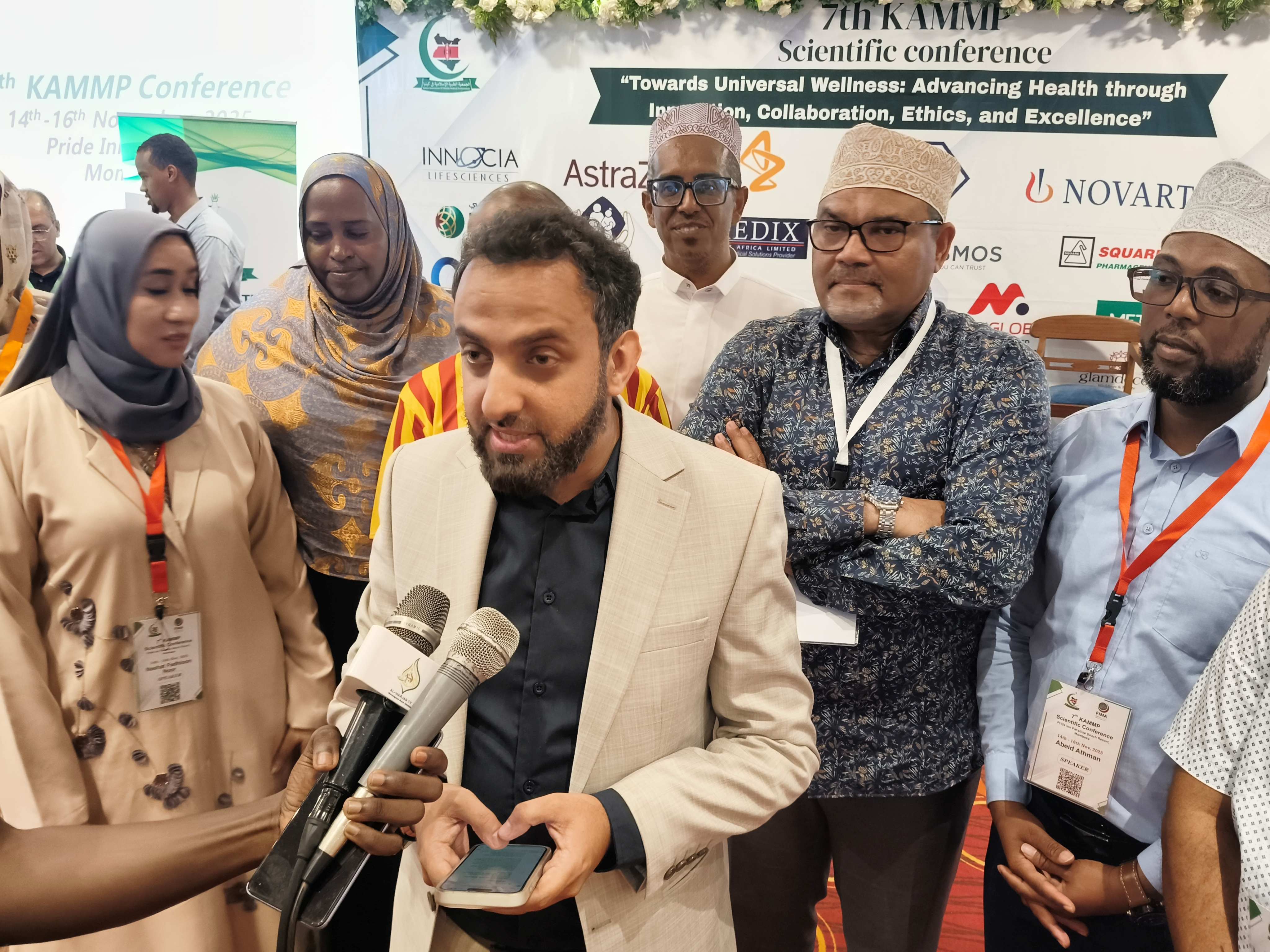 Kenya Association of
Muslim Medical Professionals secretary general Abdallah Bajaber in Mombasa on
Saturday / BRIAN OTIENO
Kenya Association of
Muslim Medical Professionals secretary general Abdallah Bajaber in Mombasa on
Saturday / BRIAN OTIENOMuslim medical practitioners have called on religious leaders in the country to help de-radicalise some of the masses against modern medicine.
Kenya Association of Muslim Medical Professionals (Kammp) on Saturday said some religious leaders have captured the minds of their followers and forbid them from seeking medical attention in hospitals.
This leads to unnecessary deaths.
Cases of religious extremism have been rampant in the country with some cults forbidding their worshippers from visiting hospitals or starving to death to meet their makers and be rewarded with eternal life.
Kammp secretary general Abdallah Bajaber said they have come up with a tool kit or guidelines for religious leaders on such matters because they are the doors to the communities.
“These guidelines show how they can deliver their messages especially on healthcare to communities so that they can embrace modern medicine,” Bajaber said.
Speaking during the 7th Kammp scientific conference in Mombasa, the secretary general said they are trying to create awareness about the possibility of co-existence of both faith and medicine.
“As medical professionals we also try to encourage our patients and the public through our channels, including TV, radio and webinars, to embrace both faith and medicine,” Bajaber said.
He said religious leaders should use the pulpits to spread these health messages.
Kammp president Ahmed Kalebi said there is need to do more for the profession and the community to be holistic in their approach to healthcare.
“This means we should think outside the box and come up with fresh ideas on how to help community members benefit more from us as professionals, whether it is on issues of SHA, or any other,” Kalebi said.
Kenyatta University Teaching, Referral and Research Hospital CEO Zeinab Gura said although science, research and innovation are important, human resource is the cog in achieving universal health coverage.
He said there is need to start packaging information and look for ways of translating the information into policies that will help serve Kenyan appropriately.
Science, Research and Innovation PS Shaukat Abdulrazak commended Kammp for coming together to address societal challenges.
He said continuous cooperation and collaboration will break the silos and barriers that prevent the community from progressing when it comes to health.
The PS said time has come to take advantage of the energy that the youth have and ensure it is directed towards meaningful progress that will help build the country and make it healthy.
He said the world is moving towards cutting edge technology like Artificial Intelligence, genomic and nanotechnology which if not well packaged, could lead to resistance among the radicalised.
“We also have the National Research Fund. This is where the government is committed to supporting research and development, including the areas of health,” PS Abdulrazak said.
He noted that at the moment, the government sets aside 0.8 per cent of the GDP to research but the target is to move it to around one per cent.
Abdulrazak said the government is finalising the Research and Development Policy that will guide how research will be conducted wholesomely.
Ahmed Omar, director of health centre coordination and research development at the Health ministry, said the ministry always looks forward to collaborating with partners and professional organisations like Kammp to drive the big agenda including strengthening SHA and reducing burden of disease.
“Kenya has one of the best health systems in Africa. In Sub-Saharan Africa, we are only second to South Africa. We need to make it accessible and affordable to all Kenyans,” he said.
Kammp Secretary General Bajaber said healthcare workers play a central role in advancing universal health coverage.
He said frontline professionals are essential in delivering quality services, strengthening community health, shaping policy and championing ethical and patient-centered care.
Delegates are now examining the ibada-friendly hospital model which promotes dignity, compassion and spiritual accommodation within clinical care.
This is an approach aligned with patient-centred quality improvement and the values of many Kenyan communities.
He said Kammp continues to take leadership in bioethics, mentorship, quality of care advocacy and strengthening the voice and role of healthcare workers in policy development and research.
INSTANT ANALYSIS
Religious extremism significantly impacts healthcare by influencing attitudes toward medical treatment, creating security risks for facilities and personnel, and offering a framework for innovative, community-based solutions to violence prevention.

















